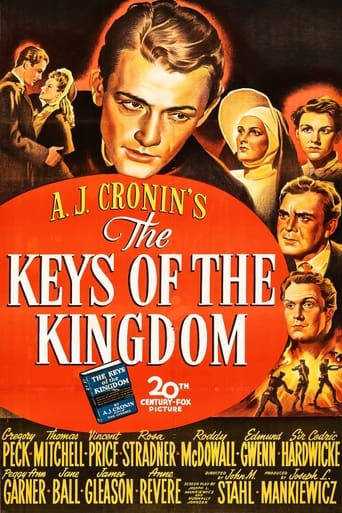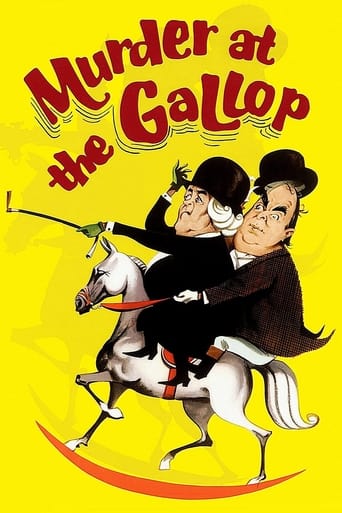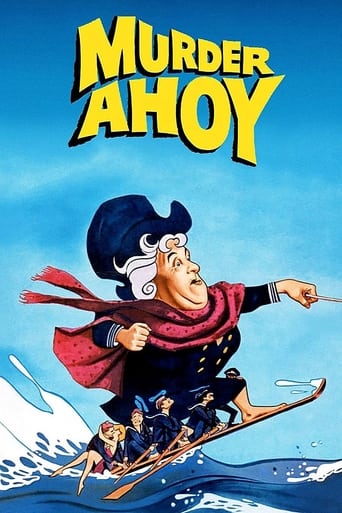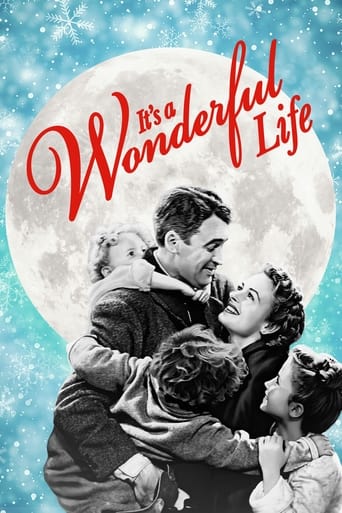


The Keys of the Kingdom
A young priest, Father Chisholm is sent to China to establish a Catholic parish among the non-Christian Chinese. While his boyhood friend, also a priest, flourishes in his calling as a priest in a more Christian area of the world, Father Chisholm struggles. He encounters hostility, isolation, disease, poverty and a variety of set backs which humble him, but make him more determined than ever to succeed.
-
- Cast:
- Gregory Peck , Thomas Mitchell , Vincent Price , Rose Stradner , Roddy McDowall , Edmund Gwenn , Cedric Hardwicke


Similar titles










Reviews
hyped garbage
I cannot think of one single thing that I would change about this film. The acting is incomparable, the directing deft, and the writing poignantly brilliant.
The film creates a perfect balance between action and depth of basic needs, in the midst of an infertile atmosphere.
An old-fashioned movie made with new-fashioned finesse.
Producer: Joseph L. Mankiewicz. Copyright 14 December 1944 by 20th Century-Fox Film Corp. New York release at the Rivoli: 29 December 1944. U.S. release: January 1945. U.K. release: 23 April 1945. Australian release: 17 January 1946. Sydney release at the Century, 11 January 1946. U.S. length: 12,375 feet. 137½ minutes. Australian length: 12,408 feet. 138 minutes.SYNOPSIS: Catholic priest ministers in China in the early years of the 19th century.NOTES: Mankiewicz's first film assignment for Fox (after leaving MGM). The script had already been prepared by Nunnally Johnson, but Mankiewicz considerably changed and re-wrote it. Gregory Peck was nominated for an Academy Award for Best Actor (losing to Ray Milland in The Lost Weekend); Arthur Miller was nominated for Best Cinematography, but the award went to Harry Stradling for The Picture of Dorian Gray; Best Art Direction and Sets were also nominated but lost to A. Roland Fields for Blood on the Sun; while Alfred Newman was passed over for the award for Best Scoring of a Dramatic or Comedy Picture in favor of Spellbound composed by Miklos Rosza.COMMENT: 19th century Hollywood rarely had the guts to stand up to the vested interests of organized religion - particularly that represented by the Roman Catholic Church. The Keys of the Kingdom is an excellent case in point. Doctor Cronin's novel is an outspoken, powerfully-crafted polemic against organized religion in general, the Catholic brand in particular - but none of Cronin's points, not a single one of his arguments or effects, is allowed to find even a shadow of an expression in this screen version. In typical Hollywood fashion, not to be defeated by this considerably watered-down, milksop version of the book, Fox's publicity department hailed the novel as "one of the most excitingly discussed books of our times" - thereby implying that the exact same qualities were to be found on the screen. Not so. What we actually have instead is the usual Hollywood impression of sanctity. The Hollywood saint is a humanitarian, first, last and foremost. He is always humble, always soft-spoken and never pushy - except when his humanitarian principles are threatened. With this proviso, he always respects and kowtows to Authority - whether religious or civil. The Hollywood clergyman is also remarkably ignorant of the dogma and doctrines of his particular church. This enables him to mix ecumenically with both adherents and ministers of different faiths - or even no faith at all (atheists) - without the slightest qualms of conscience. He is in fact a simpleton. He doesn't deny, he is simply completely unaware of the intellectualism of all religions. He has such a vague - even nonexistent - understanding of God that he is sustained through all adversities solely by a peculiar inward faith in the Rightness of all his own actions. Under the guise of humility, he is actually an ignorant, obstinate egotist who believes implicitly that his own amorphous faith in a God he neither understands nor appreciates, will either eventually right all wrongs or transcend all adverse conditions.In fact, he shows such little commitment to those precepts that are peculiar to his particular religion, it is extremely doubtful that he even knows them. As a Catholic, he will light candles regularly, but he will never speak of Indulgences or Transubstantiation or Limbo and Original Sin. If he is aware of these doctrines, he keeps them a secret. His aim is to avoid religious controversy at all costs. For this reason, he will rarely quote from the New Testament, preferring instead a Psalm or some other non-contentious verse from the Old.Such is the Hollywood priest. Within these limits, The Keys of the Kingdom is undoubtedly one of the more compelling films of a very blighted group. Pitched on a note of low intensity - and all the more effective for that - it tells of a missionary in China: his work, his struggle against apathy, his determination to live up to an ideal.Although it is often stylishly (and occasionally even powerfully) directed by John Stahl, Gregory Peck's performance in the pivotal and central role is no more than adequate at best. This was only his second film. Why he was cast in such a plum and difficult role - an untried and inexperienced actor whose debut in RKO's Days of Glory the year before was inauspicious to say the least - is another Hollywood mystery. Fortunately, he was surrounded by a fine supporting cast including Rosa Stradner (Mankiewicz's wife), playing the mother superior of the nuns at the mission, and Vincent Price, slightly out of character as the local bishop.The film is produced in Fox's usual grand epic style, with marvelous sets, beautiful camerawork and lighting - lavish production values all around.Viewed as a Hollywood venture into religion, The Keys of the Kingdom is more entertaining than most (e.g. Joan of Arc, Miracle of the Bells, The Bells of St. Mary's, Come to the Stable), less offensive than many (Jeffrey Hunter's The King of Kings; Change of Habit; A Man For All Seasons).
Without going into storyline details, this 1944 title is uncannily similar to the story events of the later "Inn of the Sixth Happiness", produced in 1958. What is baffling is that the "..Sixth Happiness" movie is claimed to be the biographical account of Gladys Aylward; yet it seems to be "Keys of the Kingdom" in new clothes. Story similarities: (1) unlikely missionary called to China (2) must build their mission with few resources (3) wins favor of local provincial leader (4) starts a children's home (5) caught in the middle of the Chinese civil war (6) humble servant, recognized for a lifetime of service.I have looked online for a comparison of these two titles, without results but I believe the storyline must have emerged from the same source. I recommend watching both, then draw your own conclusions.
THE KEYS OF THE KINGDOM covers traditional A.J. Cronin material with warmth and simplicity--the story of an idealistic, compassionate priest who has to struggle against the sins of mankind in order to make his mark in the world.GREGORY PECK is more convincing as the young Father Chisholm than he is in his aged make-up, but this was only his second film and he does a commendable overall job as the earnest priest sent as a missionary to China during troubled times. A striking performance is given by the Mother Superior, Austrian actress ROSE STRADNER, who made only a few films. She distrusts him at first but gradually becomes his best confidante and close friend.THOMAS MITCHELL is fine as Peck's self-styled atheist doctor friend and VINCENT PRICE is effective as a successful fellow priest who puts ambition ahead of godliness.It is clear that Fox put all of its production finesse behind the making of the film, ensuring that it was cast with highly professional actors who would provide a fitting supporting cast for Peck, who was being showcased as the hottest new star discovery of the '40s. The Chinese are played by real Asians rather than Hollywood character actors made up to look Oriental and this is a big plus in creating the necessary realism.The running time of two hours and ten minutes can be a little too much at times, but then--when did A.J. Cronin ever write a tale that didn't take less than two hours to put on screen, especially one that covers a man's lifetime.Summing up: Respectable film but cannot avoid the sentimentality that weakens the film's ending. Nice job of direction by John M. Stahl.
The trailer for "The Keys of the Kingdom" compares the 1944 film to the prior classics "Goodbye Mr. Chips" and "How Green Was My Valley," and the comparisons are apt. Like the two earlier films, "The Keys of the Kingdom" is the narrated story of a man's life with present-day scenes as bookends. All three films follow ordinary men who leave indelible legacies, but fail to grasp the worth of their own accomplishments. While Mr. Chips is an English teacher and young Huw Morgan is a Welsh miner's son, Father Francis Chisholm is a Scottish missionary priest in China.In this well written adaptation of the A. J. Cronin novel by Joseph L. Mankiewicz and Nunnally Johnson, Gregory Peck underplays the role of Francis Chisholm effectively and with the solid dignity that distinguished Peck's long career. In only his second screen role, Peck is a Christ-like figure who accepts people as they are, which puts him at odds with the dogmatic bureaucrats that run his church. Vincent Price is colorful as Angus Mealy, an ambitious fellow priest who puts personal advancement above godliness, and Thomas Mitchell is equally fine as Willie Tulloch, a doctor who puts his service to humanity above religion. Besides Price and Mitchell, the film has a rich cast of such other outstanding character players as Edmund Gwen, Anne Revere, Cedric Hardwick, Sara Allgood, Benson Fong, and Roddy McDowall. Each of these fine performers makes even the smallest role memorable. While Rose Stradner is fine as the Reverend Mother, the film treads a delicate line with its subtle hint at a love story between her and Father Chisholm. Perhaps there was an underlying attraction between the two that went beyond mere friendship, but, if so, that was daring territory to explore during the 1940's.While "Keys of the Kingdom" runs more than two hours, the engrossing story should hold the attention of viewers who loved "How Green Was My Valley" and "Goodbye Mr. Chips." The film provides an emotional payoff that equals those in the earlier films, and damp eyes and a sniffle or two will likely affect even the hardest hearts. While at times sentimental in the best sense of the word, "The Keys of the Kingdom" also has an important message of acceptance that is particularly relevant today. Father Chisholm does not criticize "heathens" or "atheists," but rather respects their points of view and loves them for their good deeds regardless of their philosophies. When one of Chisholm's non-believer friends lays dying, the priest does not pressure him to convert on his deathbed, and the dying man thanks his friend for his respect and for allowing him to die as he had lived. The film certainly makes a strong point when the kindest, most generous works were those done by the non-believers, the doctor and Mr. Chia, the Chinese landowner, while the most selfish individual was the self-serving social-climbing priest played by Vincent Price. Peck's acceptance of and offer of friendship to the Protestant missionaries was yet another example of the man's Christianity, which placed him at odds with his own church and did more to illustrate Christ's message than the bureaucratic church hierarchy that would not even send money to fund the mission and told him to convert people of means. Although there are a few slow stretches and the finished film is not the classic that its creators intended, "The Keys of the Kingdom" is rewarding and a showcase for a young Gregory Peck, who was poised at the dawn of his stardom.
